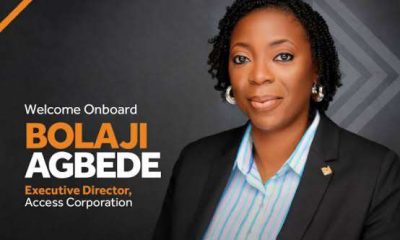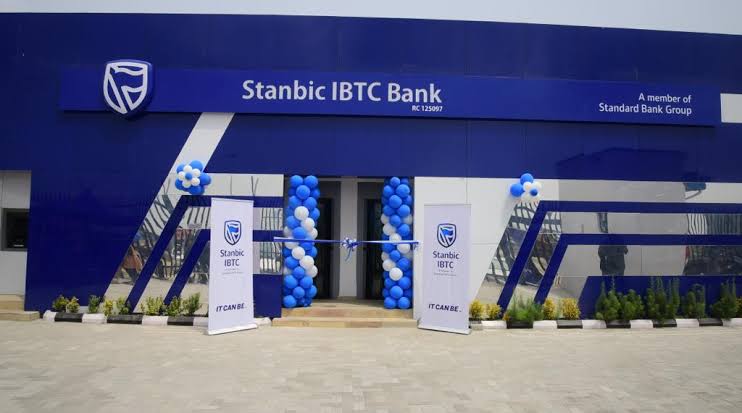Business
SPECIAL REPORT: Access Bank: Between Downsizing & Building Africa’s Gateway to the World

By JULIUS ALAGBE
Nigeria’s largest bank by total assets is in a dilemma of sorts. As the group’s operating expenses skyrocketed after its successful merger and acquisition deal, empathy and capitalism are at war in the lender’s domain.
The task before the leadership of the bank is to balance the conflicting demands between moral suasion and capitalism – should Access Bank downsize?
Growth path
The Access Bank Group has been on a strong growth path in the last decade. The group has expanded to become the largest in the economy through its acquisition growth strategy.
In the corporate space, growth usually involves a combination of strategies, procedures and approaches that works for an organisation’s success.
If that is right, maintaining the trajectory in a tough operating environment isn’t just a casual stroll in the park: it involves lots of carefully thought out approaches and frameworks.
Recently, through the agency of an online video presentation, Access Bank Chief, Herbert Wigwe revealed plans to downsize the group’s workforce.
The speech didn’t go down without pinches of emotion and was greeted with strong criticisms from the public.
Empathy or sustainability?
Access Bank will not survive profitably without carrying out a haircut on its operating expenses or lifting gross earnings in a way that marginal contributions would outpace incremental cost – maybe, even twice as much.
Unfortunately, emotional biases don’t run a business. Capitalism has set priorities and modes of reasoning. And all of these take off from the premise that there are people that pool their funds for the corporate birth to occur in the first place.
First, companies exist for the benefit of their shareholders, and then the rest; of which an employee is a strand.
Access Bank’s historical antecedents have proven that the group is quite ambitious and driven; with the latest expression of this being its plan and determination to become ‘Africa’s gateway to the World.’
The group is already riding on the cusp of a quite strong Pan-African strategy but with COVID-19, the spate of growth might have been drastically reduced.
To cope with the new development, Access Bank must work to find a way out. In the video referenced earlier, Herbert Wigwe, the Group Managing Director pitched downsizing the workforce, as the path to undertake at the moment.
Emotional-based criticism of this decision, though permitted, needs to however factor in the reality that in the Access Bank of today, maintenance cost is indeed quite large.
It is as large as the size of the total gross earnings of some smaller banks in Nigeria. In this situation, the bank is then being pulled to leverage more on technology and less on people, which is the bedrock of what the GMD said in the video presentation that had since gone viral.
Insight into Q1 2020 performance: High operating cost driven by payroll expenses hampers profitability
Many analysts recognize that the need to reduce operating expenses has become a core key performance indicator for the lender.
In an equity report, Vetiva’s analyst, Joshua Odebisi, advises investors to buy Access Bank Plc despite a marginal downward review to price target.
The lender’s stock has lost 36% year to date and is currently trading at a price to book ratio of 0.4times as against Tier-1 average of 0.5times.
In the first quarter of (Q1) 2020, Nigeria’s largest bank by total assets reported a flat profit, though the lender’s operating expenses increased.
Analysts observed that bloated personnel costs, maintenance and other related overheads may be putting pressure on the bank’s earnings.
Though the group’s earnings jerked up 31% year on year, however, the increased operating expenses that were concurrently recorded dampened the joy that ordinarily should have accompanied such strong earnings improvement.
Odebisi explained that this significant increase in itself was mainly due to the low base carried forward from Q1’19, as the bank was yet to complete its merger with the defunct Diamond Bank at the time.
However, the bank’s performance in interest income growth of 19% to ₦131.9 billion and non-interest income of 58% increase at ₦77.9 billion was equally noteworthy.
Most notably, the bank also reported a 320% year on year spike in gains from investment securities to ₦82.9 billion.
This helped to offset a ₦54.7 billion loss on foreign exchange trading and revaluations.
On the other hand, the bank recorded a 153% increase in loan loss provisions to ₦8.5 billion, which is higher than Vetiva’s estimate of ₦5.5 billion, and which is a result of the bank’s expanded loan book.
The lender recorded a 65% spike in operating expenses to ₦95.3 billion, driven by a weaker base in Q1 2019, as well as a higher wage bill.#
These came in addition to a 55% jump in Asset Management Corporation (AMCON) charges to ₦17.5 billion.
As a result of this, the bank reported a 3% growth in pretax profit to ₦46.3 billion as against Vetiva’s estimate of ₦43.5 billion and a flat profit after tax of ₦41.0 billion.
This resulted to return on average equity (ROAE) of 26.3% compared to the reported return on average equity (ROAE) of 30.9% in Q1 2019.
Meanwhile, analysts expect the management’s cost-saving strategy to rescue profits in the financial year 2020 as the high operating costs of the new ACCESS Bank continue to hamper profitability.
Amidst the prospect of further moderation in earnings occasioned by the generally weak macro-economic outlook for 2020 and the equally poor yield environment, the bank’s cost to income ratio has risen from 53.2% in Q1 2019 to 62.2% in Q1 2020.
In the financial year 2019’s audited result, lender’s cost as a proportion of income had settled at 65.0%.
“While the bank is far from being the worst performer among its peers, this issue threatens to further stifle profit growth if not properly addressed”, Vetiva’s analyst explained.
Therefore, management’s guidance on cost-cutting measures to address the challenges is positive and could offset the decline in earnings expected in the coming quarters.
Going forward, Vetiva stated that is expects a slight moderation in operating expenses to ₦268.8 billion as against ₦272.6 billion.
“The moderation is driven by cost synergies that the bank will continue to realize over the year.
“This is about branch rationalization and lower subscription fees and charges and other overhead costs”, the firm remarked.
Target price revised
Based on its assessment, Vetiva said it has revised Access Bank target price downward, from N11.35 to N11.14.
“As a result of our revised expectations for the banking sector amidst the COVID-19 outbreak, we have adjusted some line items in our FY 2020 estimates”, the firm stated.
Given the developments in the economy and the lender’s 2020 guidance, Vetiva Capital stated that it has lowered its interest income forecast for the bank to N457.1 billion, down from a previous N515.9 billion.
As well, the interest expenses line was similarly adjusted downward to N230.3 billion from N252.1 billion.
Meanwhile, the investment firm increased its non-interest income forecast to N175.4 billion compared to its previous estimate of N150.7 billion.
On the downside, the analyst raised the firm’s loan loss provision projection to N37.6 billion.
Again, the lender’s profit after tax estimate was lowered to N90.4 billion from N103.1 billion, with an EPS projection of N2.50 and a 12-month target price of N11.14.
Performance scorecard in 2019
The Access Bank Group had planned to Build Presence in World Financial Centres in a couple of years, having reached for the sky with one of the largest deals in the Nigerian financial services sector within a century.
There had never been a merger as successful as this in the history of the Nigerian banking sector in decades, analysts said.
In a quest to reach for the sky, Access Bank then revealed the plan to build a presence in major trade hubs around the world.
Wigwe, the Chief dreamer at the group, revealed the plan to analysts at its earnings briefing where the bank stated that its combination with Diamond Bank has started adding value to the new entity.
The management said over the next couple of years, the Bank will be present in two or three more of the world’s financial centres.
Speaking to the group strategy, Herbert Wigwe, the Group Managing Director and Chief Executive Officer said the management is trying to create an institution that is resilient, stands the test of time, and is well diversified not just across the African continent, but also outside of the continent.
The management said it is committed to driving effective and sustainable business growth by intensifying efforts to bolster performance.
Wigwe said: “You would see us having one of the strongest African banks in the United Kingdom with increased contributions from a percentage standpoint, therefore creating the natural hedge.
“Over the next couple of years, Access Bank will be present in two or three more of the world’s financial centres.
“This will help to enhance overall risk rating and to ensure that if you are in soft currency countries you would have hedged yourself and over time from a risk rating standpoint”, the GMD/CEO stated.
Wigwe said what that means is that the lender needs to be present in some of the major trade hubs within the continent.
Meanwhile, the largest bank by total assets also disclosed then that it had realised merger synergies of ₦59.9 billion, comprising largely of recoveries, lower cost of funds and contract renegotiations.
The Bank CEO said that at the time of sharing the merger synergies from this combination, they expected about ₦155 billion over three years.
He explained that in the first year, Access made about ₦60 billion. The merger has started to create value as post-merger metrics have far exceeded those of the individual banks on a standalone basis.
The management said looking at customer deposits, Access Bank as at the end of the first quarter of 2019 had ₦2.9 trillion while Diamond Bank had ₦1.1 trillion, leading to a combined deposit of ₦3.9 trillion.
However, the numbers show that the lender even surged further to close the year 2019 with ₦4.2 trillion of customer deposits.
Also, retail transaction income for Diamond Bank for the first quarter of 2019 was ₦6.7 billion while that of Access Bank was ₦4.3 billion.
“So if you combined it, it was ₦11 billion and on an annualised basis about ₦44 billion that was expected in 2019.
“However, at the end of the year we did about ₦52 billion which is 17% above the combined entities when you annualise the income”, the management explained.
Notably, also, Access Bank’s gross earnings grew by 26%, closing at about ₦666 billion in the period compared to ₦528.7 billion in 2018. This comprised 81% interest income and 19% noninterest income and from this point, interest income jerked up by 41% to about ₦536 billion.
The management said key contributors to this growth included 86% coming from investment securities, which rose to about ₦193 billion compared to ₦103 billion in the corresponding period in 2018.
“We saw a 28% rise in interest in loans to about ₦334 billion compared to ₦262 billion in 2018; of course resulting from the combined and growing loan book.
“As a result, net interest income from the overall balance sheet improved by 60% to ₦277 billion in 2019 compared to ₦173 billion for 2018”, the GMD said.
The bank’s operating income increased by 25% to ₦389 billion from ₦311 billion in the corresponding period of 2018, owing largely to the significant growth in net interest income and other operating income.
The key drivers of the operating income were a 48% increase in commissions and fees to a new perch of ₦91.8 billion in 2019 compared to ₦62.1 billion in 2018.
The management attributed this to a combination of the increased retail transaction charges, commissions on channels and other e-business income as well as account maintenance charges.
“We will continue to gain traction on these income lines as we continue to extend our retail offerings and grow as one combined institution, basically stabilising for growth”, the GMD said.
Access Bank also saw contribution from other operating income which came from other financial services, gain on disposal of property and equipment and about ₦38.4 billion coming from the recoveries of fully written off bad loans.
Wigwe said: “This was one of the things we said we were going to pursue aggressively as soon as the combination was done”.
On the other hand, we saw a decrease in our net traded income to a loss of ₦17.7 billion from a gain of ₦72.6 billion in 2018.
Of course, this was accounted for by our current foreign exchange trading losses and the FX revaluation and reduction in the gain on derivatives and equity investments, he added.
Our interest expense increased by 25% to ₦259.6 billion in 2019, coming from ₦207.3 billion in 2018. This was driven by the size of the enlarged deposit base resulting from the merger and interest expense on structured funding.
Operating expenses were up by 31% to ₦253.8 billion compared to ₦194 billion in 2018 as a result of an increase in personnel expense, depreciation, AMCON, IT and e-business expenses.
Concerning customer deposits, this closed at about ₦4.26 trillion, which reflected a 66% year on year growth from ₦2.6 trillion in Dec’18 and a 0.4% quarter on quarter from September 2019.
Concerning loans and advances this closed at about ₦3 trillion as at 31 December 2019, again up from ₦2.14 trillion in December 2018.
This has come from the combination and careful risk asset creation to quality corporate names, and also the supporting retail segment in line with some of the things which the Central Bank intends to project.
The management held that the group’s asset quality remains under check as the non-performing loan ratio stood at 5.8% in the period compared to the nine-month period which was 6.3%.
The key sectors that are responsible for this are; oil & gas services at 14.8%, general commerce at 11.1% and real estate activities at about 7.4%.
Wigwe said: “We will continue to drive down the non-performing loan ratio to the traditional level where the lender used to be before the merger through a combination of write-offs, recoveries, declassification and loan restructuring”.
On a year to date basis, we have written off a total of ₦93 billion and incurred full provisions on that.
However, the bank’s expected credit loss charge increased by 27% to ₦21.7 billion in 2019 from ₦14.2 billion in 2018.
Capital adequacy ratio was at about 18.2% on a full impact basis. However, if the lender considers the regulatory transition arrangements, our capital adequacy ratio stood at 20.0%, the management said.
On the position of the bank should naira be devalued, Greg Jobome, the Chief Risk Officer (CRO) said the lender has already stressed should there be a devaluation of up to ₦550/$1.
At that level, Access Bank’s capital position will still meet the regulatory requirements, Jobome said.
Jobome, however, stated that the management doesn’t want to see those kinds of rates because at that exchange rate a good chunk of the market will face a lot of stress.
Jobome said: “what we do as business, as usual, is anticipating potential market shocks.
“In line with that, we did stress for an oil price of around $30 or $40 per barrel which is precisely where it is hovering right now”.
Access Bank, however, enhanced its loan growth expectation for 2020, as the lender guided to grow at 10% to 15%.
The CRO explained that concerning LDR, naturally the goal is to meet all regulatory requirements and to support the regulator in every way possible, and that is precisely what the bank is doing.
“To balance that is our challenge. We do still have to be careful so that we don’t end up creating an asset quality issue in 12 months or in 24 months.
“So, we are striving to achieve that level of 65% or even exceed it, but with good quality names so that we do not have an asset quality or a capital issue on the back of that”, Jobome stated.
He said the bank’s target is investment-grade names where it has grown loans over the past six to nine months already.
“The other area that we are pushing is retail; we have seen significant lending that we’ve picked up concerning digital lending and other aspects of retail lending”, he said.
And despite the fact of the massive and almost unprecedented merger deal that it had undertaken in 2019, Seyi Kumapayi, the Chief Financial Officer of the new Access Bank says no new integration costs are coming in for 2020. And that in itself is quite some relief for Access Bank at a time like this.











